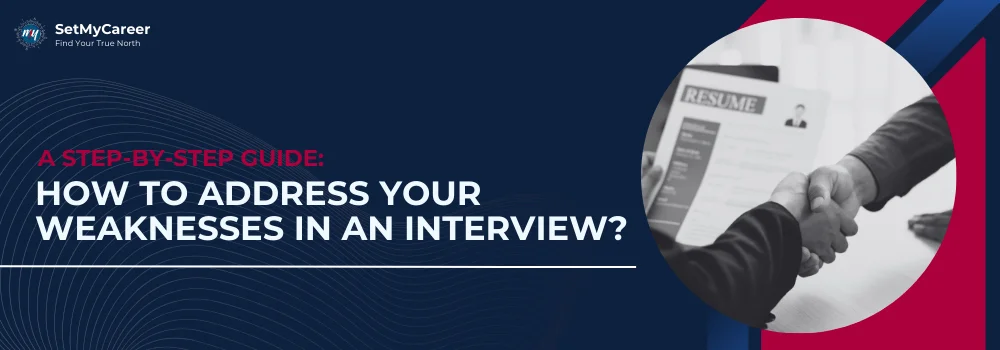Published by Jyothi Patil on 26 July 2024
Content Strategist | Editorial Team Member
Jyothi Patil is a skilled writer with a strong background in English literature, which she applies to crafting engaging content across various platforms. From writing blogs for her website and guest posts to creating pieces on Medium and Substack, Jyothi excels in making complex ideas easy to understand.
Mastering the Art of Discussing Your Weaknesses in an Interview: A Practical Guide for Interview Success

Picture this: you're in the middle of an interview, feeling confident and ready, when you hear the dreaded question, “What are your weaknesses?” It’s a question that can make even the most prepared candidate pause. But here's the twist it’s not a trap; it's a golden opportunity.
Think about a time when this question caught you off guard. You're not alone—many people find it tough. But this is your chance to stand out by showing how aware you are of your growth and how you handle challenges. Instead of fearing it, use it as a moment to highlight how you’ve turned weaknesses into strengths. In this blog, we’ll provide easy steps to help you turn your weakness in interview for freshers into strong points that show your readiness and resilience. Let’s transform those interview jitters into a chance to showcase your professional growth and learn how to face an interview confidently.
Employers ask about your weaknesses for several insightful reasons. This question helps them understand:
This question isn't just about finding flaws; it's about understanding how you handle challenges and grow from them. It’s an opportunity for you to showcase your self-improvement journey and demonstrate your readiness for the role.

Here’s how to turn your weaknesses into strengths
Ace Your InterviewWhen you're asked, "What is your weakness best answer for fresher?" during an interview, consider these steps to craft a thoughtful and impactful response:
These strategies will help you navigate the question confidently and turn it into an opportunity to showcase your self-awareness and commitment to growth. By preparing thoughtful responses, you can turn this challenging question into a chance to highlight your strengths and readiness for the role. This is a crucial part of how to face an interview confidently and edge closer to landing your Dream job.
Talking about your weaknesses in an interview doesn’t have to be scary. By knowing your weaknesses, picking one to discuss, and showing how you’re working to improve, you can turn this tough question into a chance to highlight your growth and strength. Interviews are a great way to show your commitment to improving and developing your skills. Ready to ace your next interview? Check out our resources or connect with our career experts for more tips on Career counselling for working professionals. Let’s turn your interview challenges into strengths!
No. 14/595, 1st Floor, Nanjappa Reddy Layout, Koramangala 8th Block, Bangalore 560095